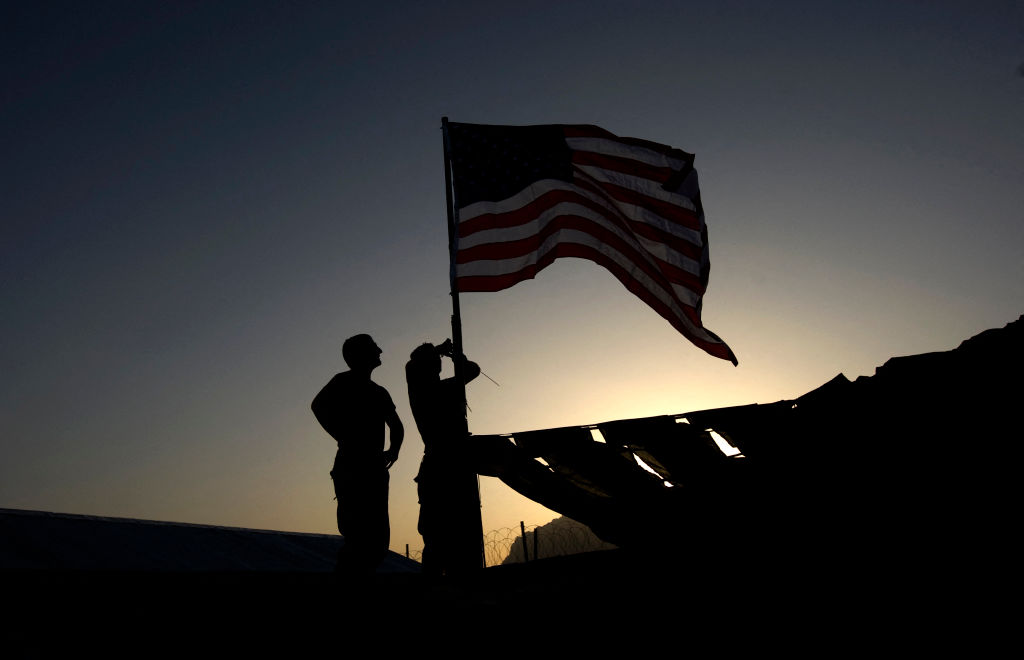By now, the American troop withdrawal from Afghanistan is etched into history as a failure — one that punctured the Biden administration’s self-professed persona as a collective of calm and cool national security veterans. The Taliban’s rapid capture of the entire country, coinciding with the meltdown of the US-funded Afghan security forces and the awful optics of desperate Afghans trying to get on a flight out of Kabul, will be examined by historians for decades.
The history-writing is already well underway. On February 17, the GOP-held House of Representatives sent letters to several government departments demanding any and all records related to the withdrawal. The Afghanistan War Commission, tasked with conducting a comprehensive investigation into the entire enterprise, is now seated. But the Office of the Special Inspector General for Afghanistan Reconstruction led by John Sopko has already devoted considerable resources to a retrospective of the months leading up to the Taliban capture of Kabul. Its most recent report, clocking in at 112 pages, was released this week.
The report is worth reading in full. The key highlights, however, will be familiar to observers of the war. The Afghan security forces, for instance, were totally dependent on foreign contractors for maintenance, fuel and logistics, which meant their troops were in bad shape as soon as those contractors were pulled out months before the US withdrawal. The Trump administration’s Doha deal with the Taliban, which traded a troop departure for Taliban commitments on counterterrorism and diplomacy with the Afghan government, had a demoralizing effect. The decline in US airstrikes in the lead-up to the withdrawal exposed Afghan forces who had grown reliant on close air support to maintain their positions.
It’s easy to blame Washington for everything that went wrong in Afghanistan. Yet the Afghan government had agency as well. Glossing over — or worse, forgetting — this critical fact paints an inaccurate picture of Afghanistan’s descent into Taliban rule. You can’t lay the entire thing at the feet of the Americans.
;768:[300×250,336×280,320×100];0:[300×250,320×100,320×50]”]For one, Afghan President Ashraf Ghani, the former World Bank official who prided himself on being a no-nonsense technocrat and intellectual, was in reality a poor administrator obsessed with power and personal loyalty. Ghani shuffled Afghan army commanders around like a game of musical chairs. Cocooned in the presidential palace, his inner-circle was as detached from reality as he was. Ghani’s government couldn’t pay the very troops who were ordered to hold the line, and many of them went months without a paycheck. So when the Taliban were bribing them to stand down, there wasn’t much of an incentive to reject the overtures. Why risk your life for a dying cause?
In the months before the withdrawal, the Biden administration tried to persuade Ghani to sign a power-sharing agreement with the Taliban to stave off the kind of rapid collapse the world saw in August 2021. The formulation would have included a 90-day cessation of hostilities, direct talks between Ghani and the Taliban, and the establishment of an interim administration with Taliban participation. Later on, new elections would be organized. Yet Ghani, not wanting to take orders from the Americans, rejected the proposal. Others, like his vice president, Amrulleh Saleh, had long been opposed to making any deals with the Taliban and believed any concessions at the negotiating table would be a slippery slope leading to the dissolution of a political order that it was in their self-interest to sustain.
Perhaps the biggest mistake the Afghan government made, however, was not believing that the United States would actually pack up and leave. As Afghan national security adviser Hamdullah Mohib told the US inspector general, “we always knew the United States would withdraw eventually… [b]ut we were caught off guard by President Biden’s decision to withdraw completely without conditions being met in the U.S. agreement with the Taliban.”
This turned out to be enormously consequential for Ghani and his team, and quite sad because it was an entirely avoidable. It’s not like Joe Biden didn’t have a long track record of opposing US counterinsurgency in Afghanistan or escalating the US military commitment there. One of the Biden campaign’s big foreign policy pronouncements was ending the “forever wars” that had dominated US foreign policy for twenty years, of which Afghanistan was front and center.
The Afghans could be forgiven for thinking Biden might have altered his position once he entered the Oval Office — indeed, this is precisely what Barack Obama did during his second term. But the Afghan government should have seen the writing on the wall. This isn’t a matter of hindsight. It was quite clear at the time that American officials were becoming increasingly exasperated with the expensive, seemingly unending cul-de-sac that was the war in Afghanistan (the American public had grown tired off the war long before the policy elites did). When Biden made an unequivocal announcement at the White House on April 14, 2021 that troops were getting out, whatever hopes Afghan officials had should have faded.
;768:[300×250,336×280,320×100];0:[300×250,320×100,320×50]”]The Afghanistan War Commission will hopefully dive deep into all of this. One hopes there will be as much interest in probing the war’s 20-year duration as there is in examining the last several months.

























